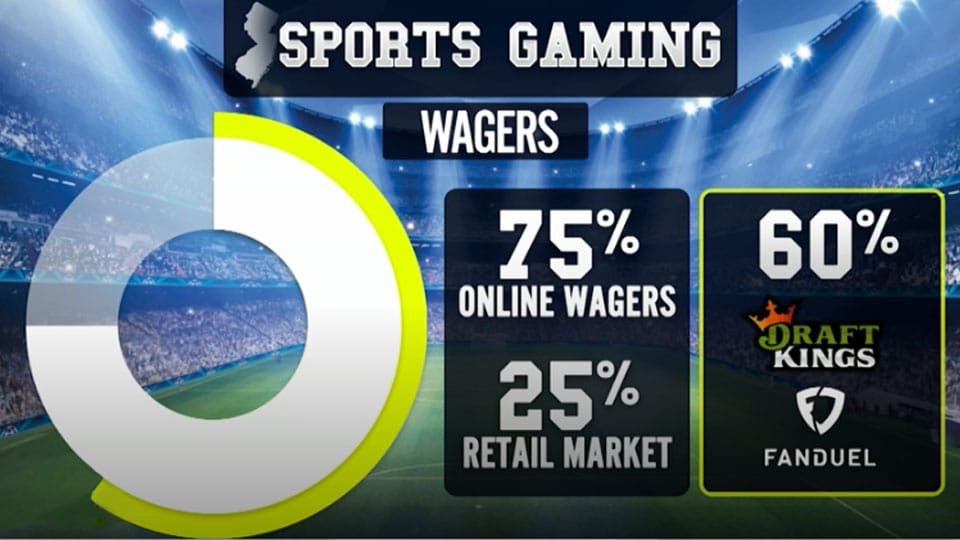 With giant scissors, Giants Hall of Famer, Harry Carson cut the ribbon opening the new DraftKings Sportsbook at Resorts in Atlantic City.
With giant scissors, Giants Hall of Famer, Harry Carson cut the ribbon opening the new DraftKings Sportsbook at Resorts in Atlantic City.
Carson also placed the first bet worth $10 on the Yankees to win the next World Series.
With venues boasting wall-to-wall TV screens, a plush bar, and convenient kiosks, revenue figures show patrons are betting where the action’s legal and the odds more favorable.
“You don’t have to worry about looking over your shoulder. You don’t have to worry about illegal betting,” said one of the patrons.
“A huge market has been untapped, that wants a legal sports betting option.”
Ever since the first NJ legal sports betting wager was placed at Monmouth Park in June. Gamblers in New Jersey have wagered $597 million on sports through October. All in all, generating about $52 million in revenue for operators and $5.5 million in state taxes.
Forecast
These are figures that could easily exceed the state treasurer’s original forecast of $124 million in revenue and $13 million in taxes for this fiscal year.
“In October alone, there was more than a quarter of a billion dollars in total wagers. That’s already halfway to what we usually see in a busy month in Nevada,” said Gouker. “I think we expect to see New Jersey eventually surpassing Nevada.”
They’ve already exceeded their internal expectations for the Q4 of this year, so we’ll see how the market responds as time goes by.
Nine brick and mortar retail sportsbooks and eight mobile sites are now active in New Jersey. They face no real competition yet from New York or Pennsylvania. The Jersey market’s exploding online. Seventy-five percent of all revenues come from digital wagers with twenty-five percent coming from retail. Daily Fantasy Sports icons FanDuel and DraftKings currently control 60 percent of the market. And of those two, it’s DraftKing’s Resorts that’s market king.
“Just last month, Resorts digital produced 43 percent of the total sports betting revenue,” Dent said.
But monopolies don’t last forever. Nick drove to Atlantic City from Queens to place his bets.
Sports betting can throw some odd revenue curves. Bettors wagered $174.3 million in September and the operators kept a nice 13 percent cut. However, bettors wagered 42 percent more in October, $260.7 million, but operators kept only 4.5 percent of that. Sports isn’t like slots.
“People have to realize, it’s called gambling,” said David Rebuck, director of the New Jersey Division of Gaming Enforcement. “It’s a very fluid gambling activity and it’s not as stable as you would think. So, there’s peaks and valley based on upsets.”
Bottom line, you can count on sports betting to generate strong revenues, especially online, but don’t bet on consistent numbers.

